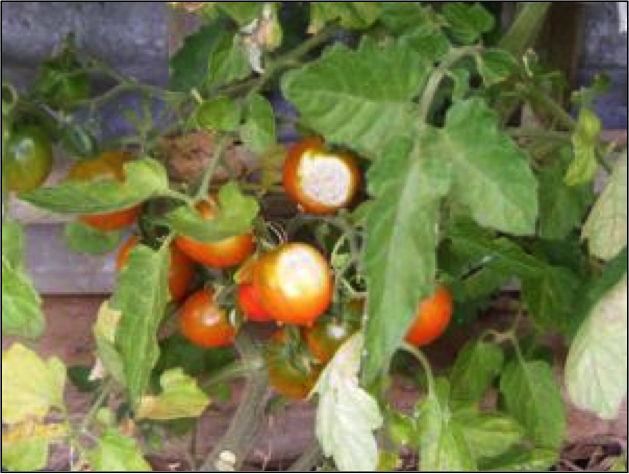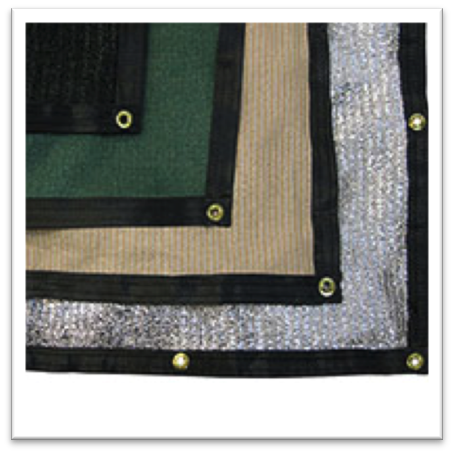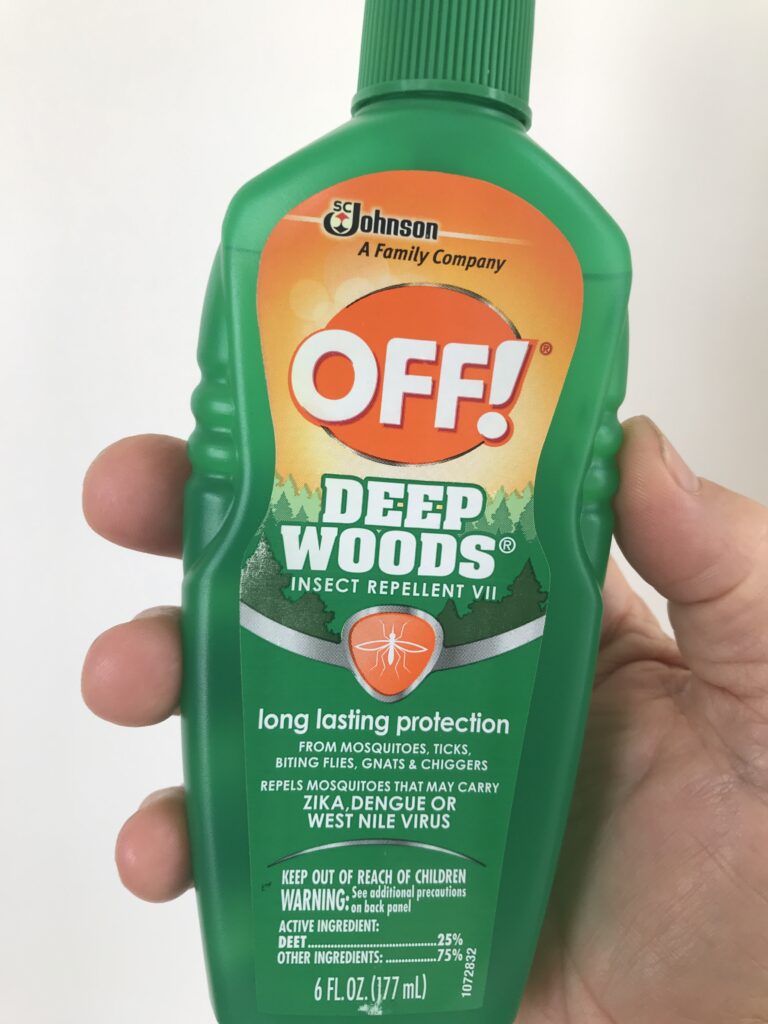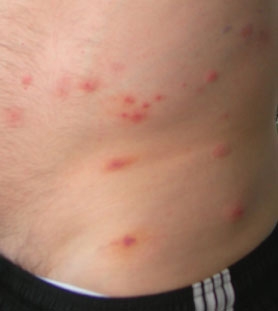Mother nature has blessed us with (mostly!) milder summer temperatures so far, but more hot days are likely. Vegetable and landscape plants may wilt during the intense heat of mid-day but if properly watered, will bounce back overnight.

Fruits and vegetables are a different matter. Once an unripe plum or tomato is sun-scorched, it becomes permanently damaged. Despite the intense August sunshine, you can protect your ripening veggies and fruits with shade cloth above your little darlings.

My favorite shade cloth is a light-colored woven fabric rated for 40-60% sun radiation prevention. The light color reflects away most of the sun’s harmful heat, but still allows about half of the needed radiation to reach the ripening produce.
I recommend that you build a temporary support structure out of unglued PVC sprinkler pipe and attachment pieces. You can then anchor down the shade cloth to the supports with twist ties to prevent wind from relocating the cloth.
Don’t drape the protection directly on your plants because its weight (or creatures climbing on it) may harm your plants.

Protect Against Bug Bites
While you are working in your lush garden, remember to protect yourself from itchy and painful bug bites. Invisible biting pests may target you for a blood meal because human blood contains an enzyme they need for reproduction. Our dry summertime weather used to protect Bay Area gardeners from non-flying biters as they prefer moist, warm summer climates such as in the Midwest and southern states. But with our increasing numbers of lawns and gardens, ticks, chiggers, and oak itch mites have moved into our watered and lush areas. The peak season for tick and mite bites is now, in August.
Ticks – Our area has abundant blacklegged deer ticks in weedy meadows, but also dog ticks this time of year. Both can hitch a ride into your garden on wild creatures, dogs, cats, or even you. Always check your skin for ticks after you’ve been gardening. Pluck them off and toss into a toilet before they bite. If you do get bit, see your doctor because they sometimes transmit serious diseases. Medium-strength DEET or strong natural repellents on skin or clothing keep ticks off. Ticks hate the smell of lemon, orange, cinnamon, lavender, peppermint, and rose geranium so they will avoid latching on to anything that smells of those items.
Chiggers – These infamous invisible mites have spread to the Bay Area. Moist vegetation, such as lawns or lush vegetable gardens are favorite hangouts. They are so small that they can crawl around on your skin for hours without feeling them. Clothing does not keep them away from your skin. Their bites leave intensely itchy or painful welts, usually around your ankles or mid-section that last for weeks. Spray a 24%+ DEET solution onto your ankles and socks, around your mid-section, and on any exposed skin areas while you garden in July and August. Shower immediately after you come inside from working in moist garden areas then change into your “indoor clothes”.
Oak Itch Mites – If you live like me in or near an oak woodland, be careful to spray yourself with 24+% DEET solution while you are walking or working beneath these shady trees. Oak itch mites are invisible like chiggers and can drop by the hundreds at times from infected trees. Their biting habits are similar to chiggers, and bites are equally itchy or painful. But itch mites are not a problem unless oaks are near your garden.
Protect your produce and yourself from injury by taking these extra precautions this time of year. Use shade cloth on hot days. And I apply my “deep woods” DEET repellant whenever I head to work in my garden and always shower when I come indoors. Being a naked gardener does not mean you have to be covered in painful welts.
I welcome all comments and questions. Email me at NakedGardener@diablogazette.com. In some cases these may appear in future columns.

